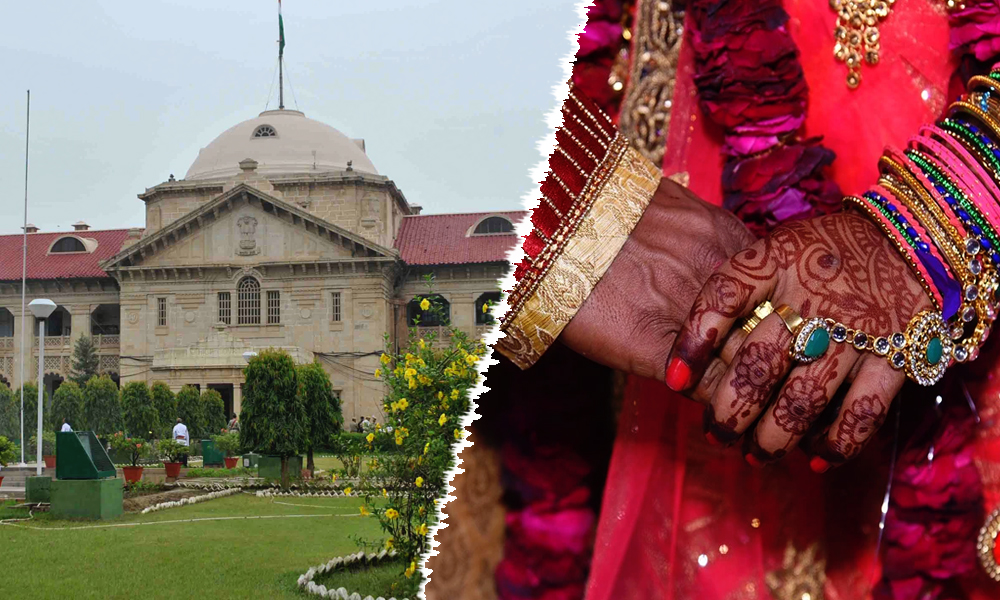
Credits: Pixabay
30-Day Prior Notice In Special Marriage Act Violates Privacy Rights, Not Mandatory: Allahabad High Court
Writer: Devyani Madaik
A media enthusiast, Devyani believes in learning on the job and there is nothing off limits when it comes to work. Writing is her passion and she is always ready for a debate as well.
Uttar Pradesh, 14 Jan 2021 10:54 AM GMT
Editor : Shubhendu Deshmukh |
Shubhendu, the quint essential news junky, the man who loves science and politics in equal measure and offers the complete contrast to it by being a fan of urdu poetry as well.
Creatives : Abhishek M
" An engineer by profession, Abhishek is the creative producer of the team, graphic designing is his passion and travelling his get away. In more ways than one, he makes the content visually appealing."
The Allahabad High Court held that the requirement of publishing a 30-day prior notice of intended marriage under Section 6 and inviting objections under Section 7 of the Special Marriage Act, 1954 is no longer mandatory.
The Allahabad High Court on Wednesday, January 13, held that the 30-day prior notice for those who wish to marry under the Special Marriage Act, 1954 is not mandatory, and can choose not to publish it.
The court's recent judgment has as a sigh of relief for the inter-faith couples.
According to Section 5 of the Special Marriage Act, interfaith couples who intend to marry are required to give a 30-day public notice before the solemnisation of marriages.
Justice Vivek Chaudhary observed that making such publishing mandatory invades the fundamental rights of liberty and privacy, and the freedom to choose whom to marry without any interference from state and non-state actors, LiveLaw reported.
The court made the judgment after hearing a habeas corpus plea by an interfaith couple, where the woman was being stopped from marrying her partner by her family. In their petition, the couple had said that such notice 'would be an invasion of their privacy and cause unnecessary social pressure or interference in their marriage.'
Justice Chaudhary said the publishing the notice should be optional. Those who opt to solemnise their marriage are required to make a written request to the marriage officer. Publication of such notice and further procedure should be such that it would uphold their fundamental rights of the couple and not violate the same, the judge added.
"It would be cruel and unethical to force the present generation living with its current needs and expectations to follow the customs and traditions adopted by a generation living nearly 150 years back for its social needs and circumstances, which violates fundamental rights recognised by the courts of the day… it is the duty of this court to revisit the interpretation of the procedure under challenge as provided in the Act of 1954," Justice Chaudhary's order read as quoted by The Indian Express.
Justice Chaudhary also cited landmark ruling by the Supreme Court on the right to privacy, including the 2017 Aadhaar case, which recognised the right to privacy as a fundamental right, and the 2018 ruling in which the court decriminalised homosexuality.
Also Read: Vaccine Makers To Be Liable For Adverse Effects Of Their Vaccination In India
 All section
All section














